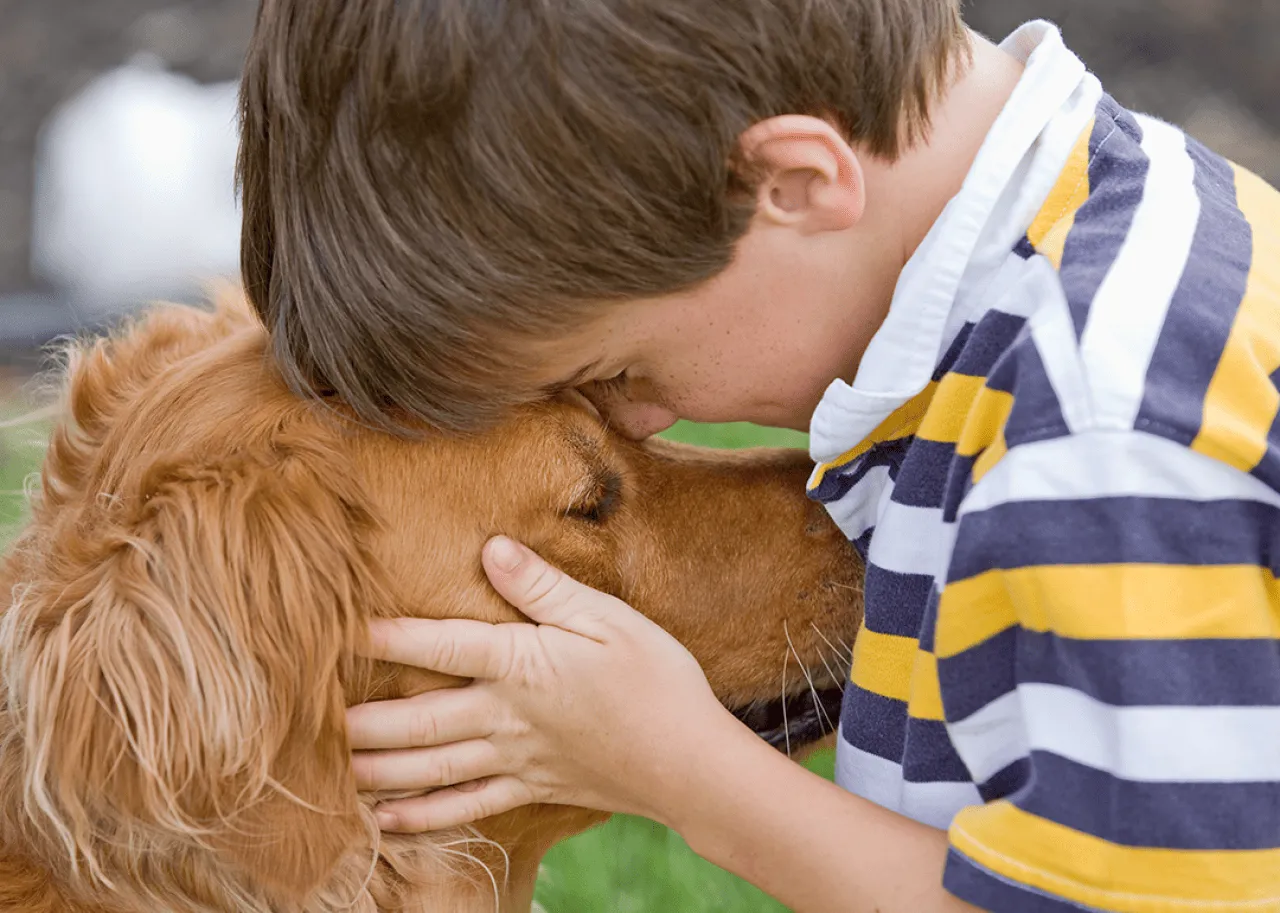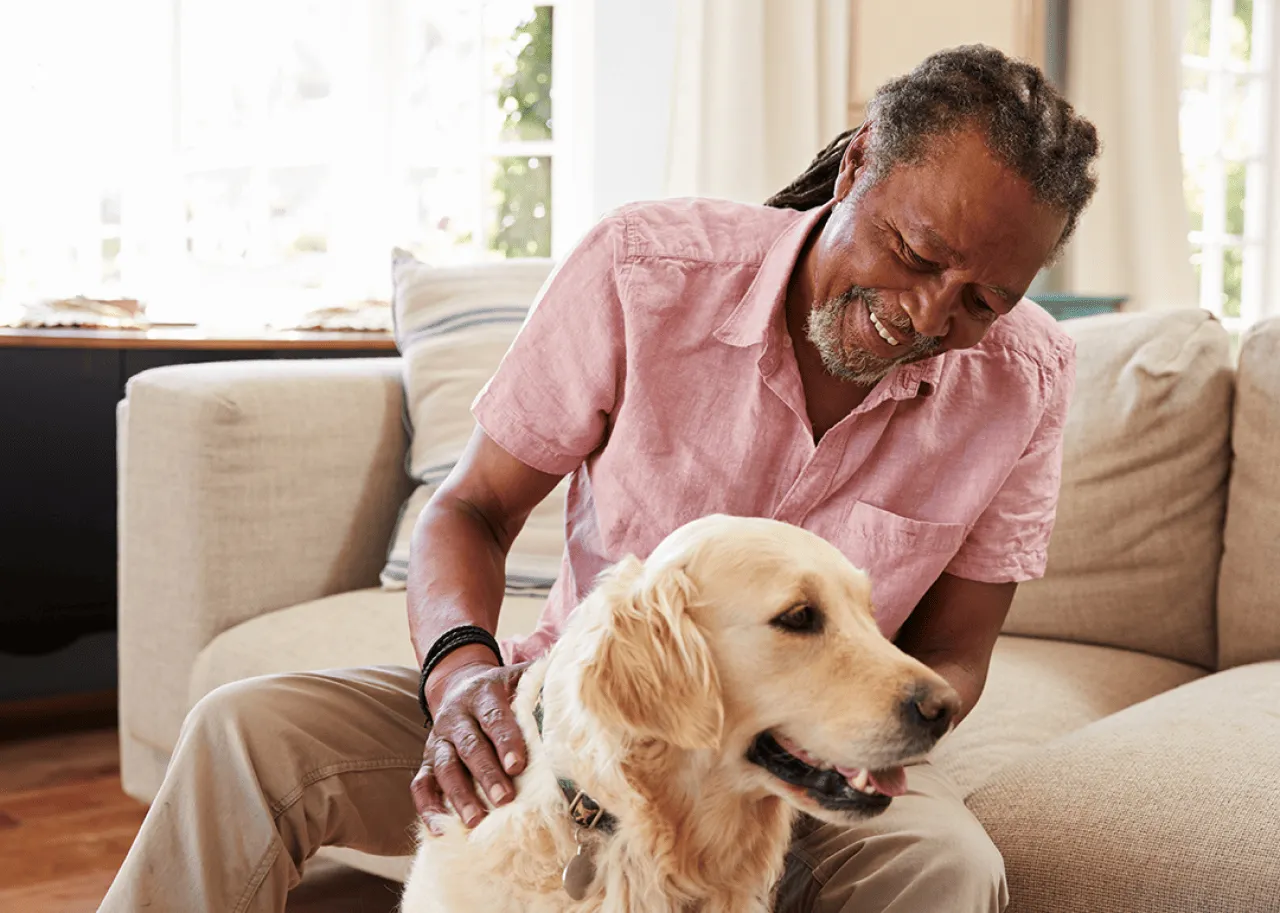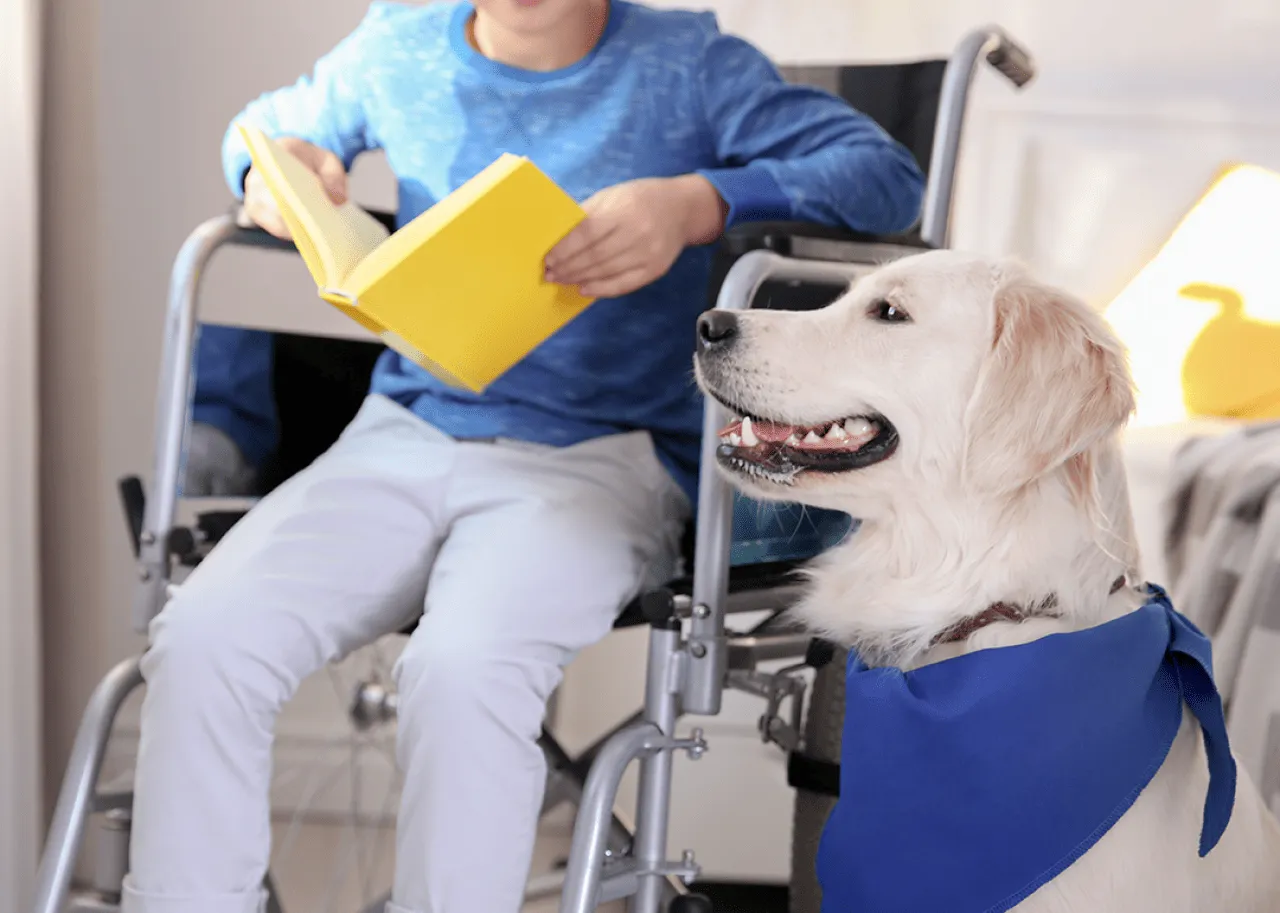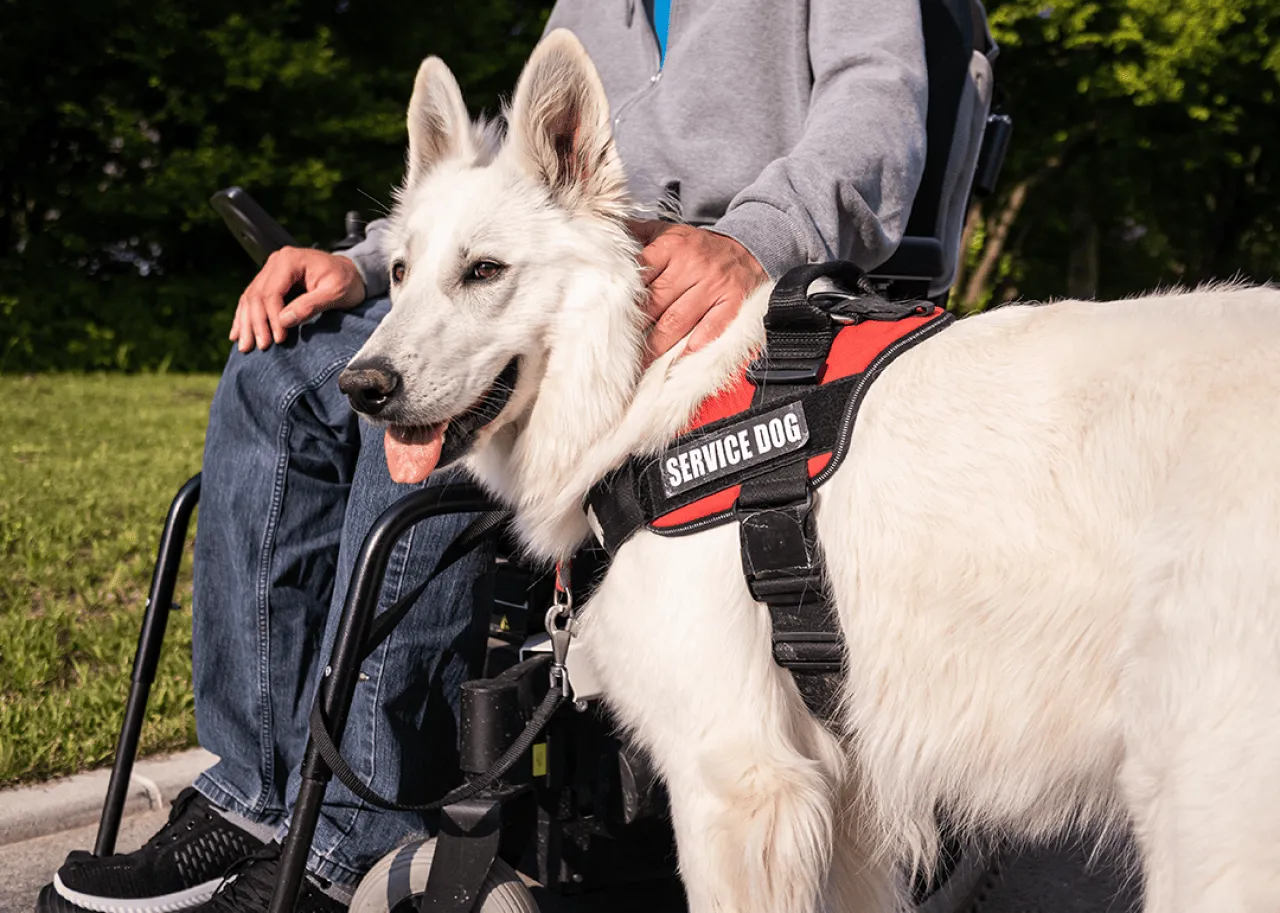5 unexpected ways service and emotional support dogs improve and save human lives
Pets

Audio By Carbonatix
By Colleen Kilday, Stacker

5 unexpected ways service and emotional support dogs improve and save human lives
Whether guiding the visually impaired, aiding in disaster relief, or comforting the distressed, dogs have selflessly served humanity since the human-dog bond took its modern form. Using news reports and studies, Pettable explored new and unique ways organizations are using these assistance dogs.
One of the earliest instances of dogs helping humans can be found in wall paintings dating as far back as the first century A.D. There is also documentation of dogs helping people who were blind in Europe from the 19th century, but the first modern service dogs came about during World War I. These dogs attended to German soldiers who were blinded by mustard gas, leading to the establishment of the first guide dog school for blind people in Oldenburg, Germany, in 1916. Dorothy Harrison Eustis is credited with introducing the concept to the United States on the premise of enabling independence for those who are blind.
It was only later that dogs were also used beyond helping humans manage their mobility, leading to dogs that serve those with physical disabilities and even psychiatric disorders. Because of their loyalty, intelligence, and enthusiasm, dogs are well-suited to attend to those with chronic impairments. Some studies have even shown that the presence of dogs is linked to health benefits, including decreased blood pressure and heart health.
There are important distinctions between each type of dog and the assistance they offer, however. Under the Americans with Disabilities Act, service dogs must undergo strict training to earn their titles. Selected trainees usually are resilient to distraction and are highly responsive to training.
Dogs can also offer assistance beyond helping with disabilities, and these animals fall outside of the ADA's purview. Other types of assistance animals can offer comfort in emergency situations, alleviate some symptoms of a person's disability, and even be a critical part of search and rescue efforts.

Personalized service for children with developmental disabilities
Children with autism or developmental conditions face an array of highly personal challenges. NEADS World Class Service Dogs, based in Princeton, Massachusetts, selects and trains dogs that are particularly good with children. It also aims to match these youth with dogs that best suit their individual needs and personalities.
For example, a child who struggles with moving from one activity to another could exercise the dog to ease the transition; while a child who struggles with socializing or speaking may benefit most from a dog that would elicit predictable questions from inquiring adults that a child could practice answering. After a comprehensive training process for the dog, families spend one to two weeks on the organization's 18-acre campus learning to live and work with their new service companion. Other organizations that train dogs to serve children with autism or developmental disabilities include Little Angels Service Dogs.

Helping survivors of trafficking and domestic abuse
The Freedom K9 Project is an organization established specifically to serve survivors of sex trafficking and domestic abuse who developed post-traumatic stress disorder. While service dogs have long been used to aid veterans' PTSD recovery, they offer substantial benefits to sufferers of other types of trauma as well.
Given that one of the major symptoms of PTSD is hypervigilance, the companionship of a loyal dog can help the individual feel less vulnerable when navigating the world. Because the dog relies on its human to provide food and exercise, its natural needs can spur its owner to develop structure and routine as well. The organization has also developed a partner network, the Freedom K9 Coalition, to further expand access to PTSD service dogs.

Easing reading anxiety
Intermountain Therapy Animals, based in Salt Lake City, has pioneered the concept of animal-assisted education since it established the Reading Education Assistance Dogs program, aka R.E.A.D program, in 1999.
Children who become frustrated or stressed while reading out loud may find it easier to read to a nonjudgmental and fluffy friend. It also helps kids build a more positive relationship with reading, especially for those who have struggled beforehand. A review of research about dogs, children, and cognitive performance from Canterbury Christ Church University suggests that the presence of a dog can enhance children's cognitive performance by helping ease anxiety and stress.

Detecting the presence of allergens
Food allergy rates and hospitalizations due to anaphylaxis are each on the rise. Allergen Detection Service Dogs is at the forefront of enlisting dogs to help combat the growing challenge.
The Colorado-based organization was founded to train dogs to detect allergens such as peanuts but has since successfully trained dogs to detect other allergens including gluten and latex. After training in scent detection, these service dogs are able to alert owners to potential traces of their allergens in the environment. However, allergen detection dogs are not yet able to identify signs of anaphylaxis onset per the organization.

Becoming a battle buddy
Warriors Heart is an organization with locations in Texas and Virginia dedicated to providing military veterans and first responders with treatment services for conditions including substance use disorder, PTSD, and mild traumatic brain injuries. Substance use and PTSD frequently concur: according to the Department of Veterans Affairs, 20% of veterans with PTSD also have SUD. Additionally, VA estimates that more than half of veterans could potentially have substance abuse disorder.
The program has facilities to house up to 22 service dogs who don't have homes or are in need of a new service assignment and trains them to specifically meet their handler's needs spanning nightmare interruption to simply establishing a routine. Upon completing their treatment program, patients are given the opportunity to adopt the dog that they have bonded with, now called their "battle buddy."
Story editing by Carren Jao. Copy editing by Lois Hince.
This story was produced by Mechanism Ventures and was produced and distributed in partnership with Stacker.

























